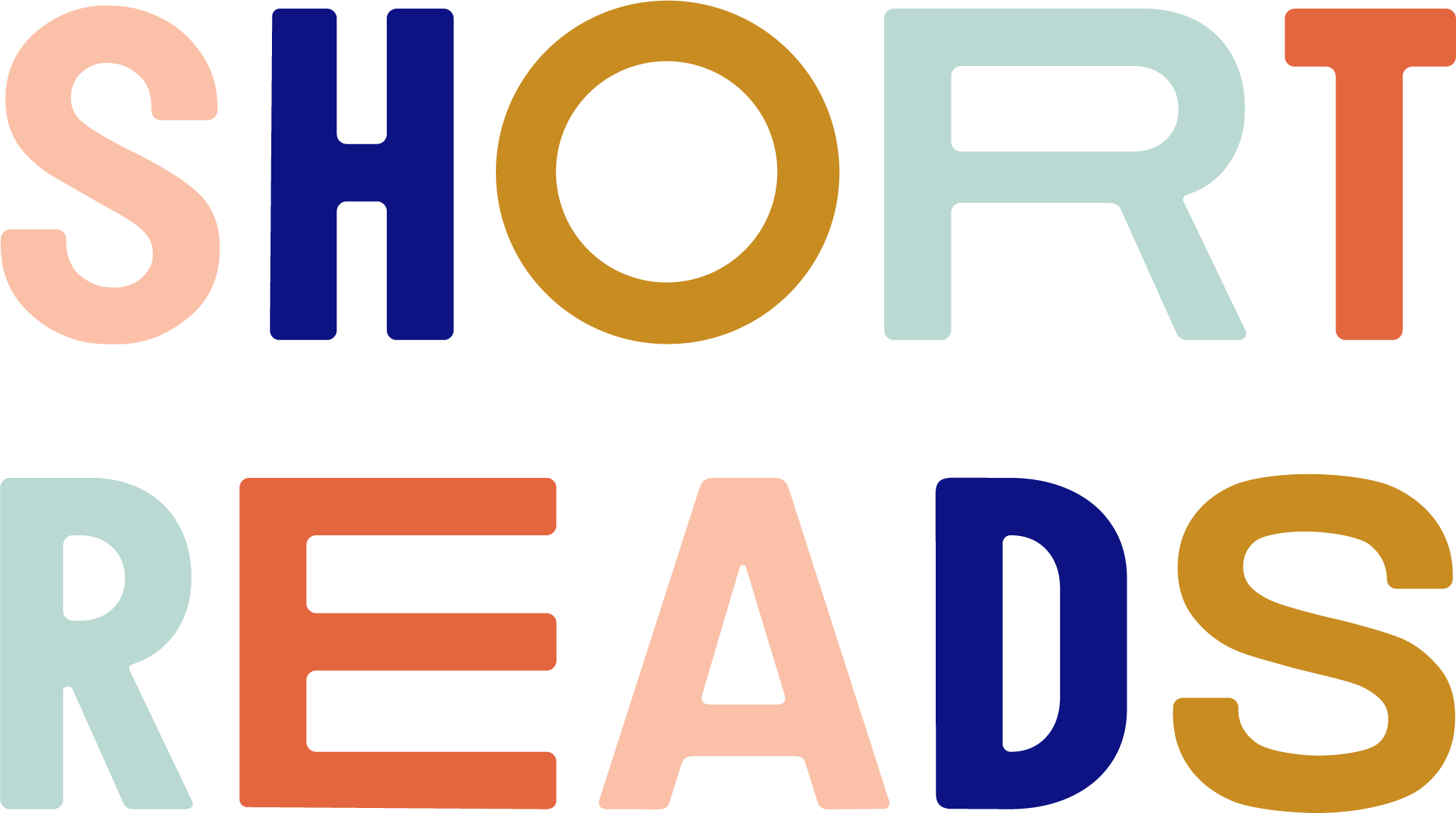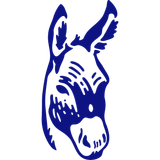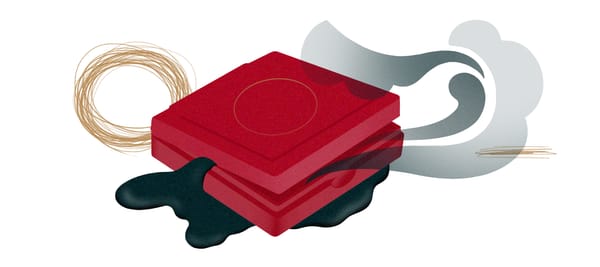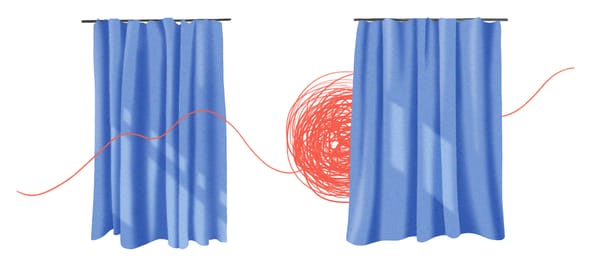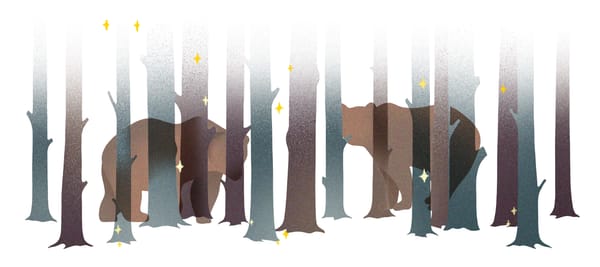Showering with Spiders
by Victoria Doerper | It’s a small thing.
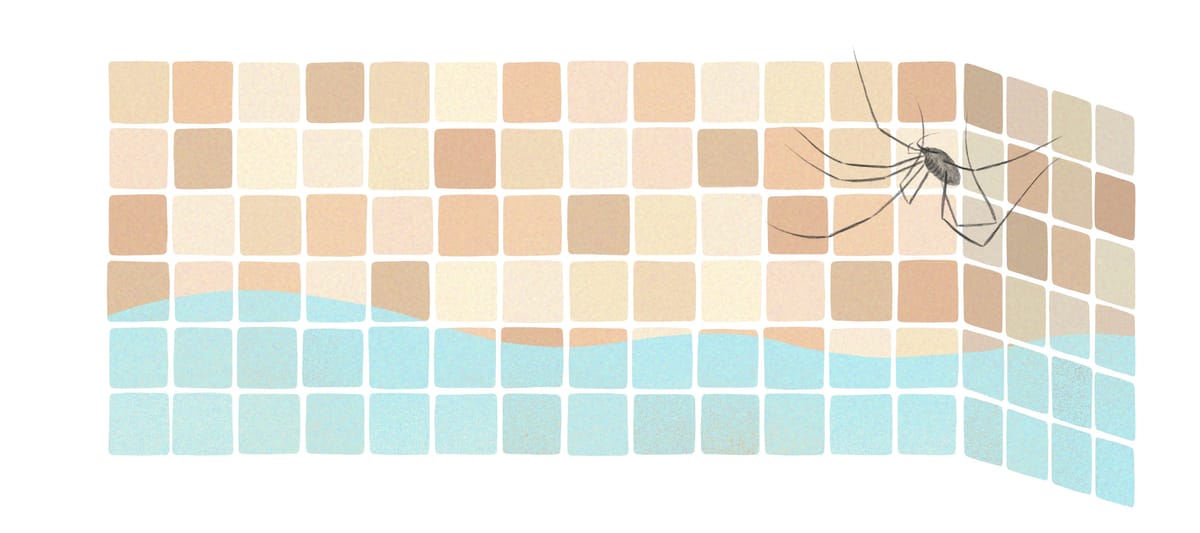
One cold morning last autumn, with the shower’s hot, steamy water pleasantly pelting my neck and shoulders, I glanced up and noticed a spider hanging in the corner above my head—a quivering, spindly, brown spider. I’m not a spider aficionado, but I do know about toxic spiders in our area of the Pacific Northwest: the hobo spider and the black widow. My shower companion was neither. A daddy longlegs, I deduced, Pholcus phalangioides to be precise, minding its own business near the showerhead.
Daddy longlegs spiders build messy webs with no particular pattern to them, and they eat insects, mites, and other spiders, including the hobo (and, I’m sorry to say, sometimes each other). They like ceiling corners and warmer spaces, so the beige fiberglass tub/shower combination in our twenty-plus-year-old home made a comfortable spot for spider settlement.
I was in a hurry, so I finished my shower and thought no more about the long-legged wall hugger. The next morning, as I shoved back the shower curtain and stepped into the tub, there it was again. Or still. How long had this creature lived in my bathroom without my noticing? Maybe for months, possibly longer. How long is that in spider time? With a lifespan of two or three years, this arachnid may have inhabited the space for a third of its life or more. In a way, the spider had greater claim to the shower than I had. In terms of the percentages of our lives spent in the place, I was the newcomer, and if I cleared the web, I’d be the one driving out the longtime inhabitant. Besides, I could shower quite comfortably with or without him. Or her.
And so began my conscious choice to shower with spiders. It’s a small thing, one might say a silly and meaningless thing. We spend maybe ten minutes together each morning, all told, more time than some busy working couples spend in conversation each day. I have found that I’m strangely appreciative of our benign interspecies companionship during my morning routine. I’m required to do nothing special, except be quietly mindful of another being inhabiting my space in an unfathomable way. If I notice my itsy-bitsy neighbor slowly lowering itself from the ceiling toward the shower stall while I’m there, I’ll shake my hand to splash a bit of water as a warning. The spider, being mindful, too, will vibrate for a moment, and then either stop and crouch with its belly close to the wall, or quickstep back up toward the ceiling. We have an understanding, the spider and I: do no harm.
Spiders strike me as being neither as kindly as E. B. White’s Charlotte nor as terrifying as Tolkien’s Shelob. I don’t understand their place in the universe, these eight-legged creatures—but I don’t need to. They have inhabited this world far longer than my kin and ancestors.
Even when I’ve finally knocked down webs because a spider-phobic friend is coming for a visit or because it’s time to get my housekeeping under control, I do it while the spider is temporarily gone. I suppose that still qualifies as doing harm. But soon enough, I’ll step into the shower and find another web, just as messy as my own habitation, with the spider lounging in its midst. Then we start again.
Victoria Doerper writes creative nonfiction and poetry from her home near the Salish Sea in Bellingham, Washington. Find her work in her book, What If We All Bloomed: Poems of Nature, Love, and Aging, as well as in literary publications, including Crocodile Quarterly; I Sing the Salmon Home; For Love of Orcas; and Orion Magazine. Victoria is a longtime birder and dedicated walker, advocate for preservation of green space, and tender of plants and wildlife who live in her small yard.
This essay originally appeared in Orion Magazine (2017).
Want more like this? Subscribe to Short Reads and get one fresh flash essay—for free—in your inbox every Wednesday. Or become a supporting subscriber and help us pay writers.
